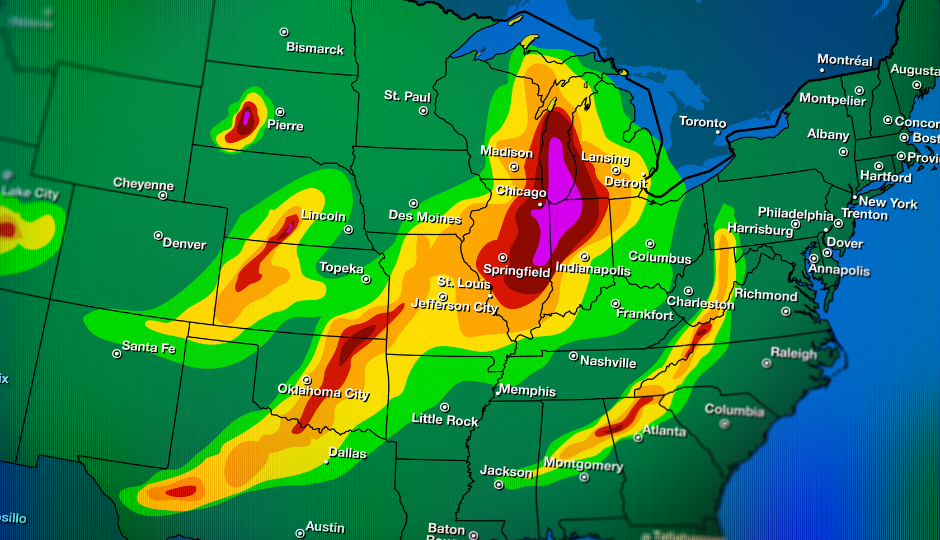By Jarren Ringle
The news can be filled with floods, fires, storms, accidents, and the like. Growing up in western Ohio’s tornado alley caused me to be aware of weather threats, and my parents always had plans in place to deal with the typical weather issues we could face.
Today, we have access to many ways to stay informed and alerted to things that could impact our safety. This article will cover many of those ways. Being prepared reduces our anxiety and can help keep us safe.
Note: The Delaware County Office of Homeland Security and Emergency Management has provided much of the following information. I am a volunteer with that organization.
NOAA Weather Radios are America’s official warning system. They work faster than any other device, including your smartphone. They can be programmed to alert you by county and type of emergency. Very good radios can be purchased for less than $50, and always get one with battery backup.
Weather Applications – There are many weather apps for smartphones and tablets. One of my favorite weather apps is called “Windy,” and it is available for Apple and Android smartphones and tablets. Apple and Android phones have built-in weather apps. Other smartphone weather apps include AccuWeather, Wunderground, and RadarScope. Many TV stations have weather apps like NBC4 Wx. Some of these will also include alerts for severe weather. Get Apple apps from the App Store and get Android apps from the Google Play Store.
Wireless Emergency Applications—There are two Delaware County alerts everyone should use. The first is DelCoALERTS. Sign up at https://delcoalerts.org. The other is a snow alert called DelCoSNOW, which you sign up for by texting DELCOSNOW to 888777. These are both supported by our local agencies and respond very quickly to weather and travel issues. Alerts can also be sent by authorized government alerting authorities like the National Weather Service or EMA.
Please don’t turn off the AMBER alert notification in your settings. FEMA and other government agencies use the same alert notification system (Integrated Public Alert & Warning System), and you risk not receiving these important emergency alerts.
Many local TV and radio stations have the option to receive weather and travel alerts. Some have smartphone apps, and those just send a text message.
Outdoor Warning Sirens – The last option is often misunderstood. Outdoor sirens are placed in various locations around the county. If you live close to one, you might be able to hear it when you are outdoors. They are not intended to warn you when you are inside… hence why they are called outdoor sirens.
In closing, many options were presented, and there are many more that weren’t. Not all are needed, but everyone should have at least three alert services and also dependable weather applications. A good resource to help you prepare is one called “Ready,” and it is from the U.S. Department of Homeland Security. The URL is https://www.ready.gov. It is filled with useful information.
You won’t be scared if you are prepared. You will be aware!

Jarren Ringle is a member of SourcePoint and a volunteer instructor. SourcePointers come to Jarren for tutelage on their tablets, laptops, and the most popular of all devices – cell phones. He teaches various technology classes throughout the year including one-on-one sessions and group classes. Jarren also volunteers at the Delaware County Office of Homeland Security and Emergency Management. With many years of project management experience in various technology fields, he enjoys helping others with technology.
Technology 1:1 Assistance: Jarren Ringle provides guidance on technology in a 45-minute time slot. Do you have questions regarding a cell phone, PC, laptop or tablet? Share what the device is and what your question is upon registration so that Jarren can be better prepared to help. >> Schedule your 1:1

